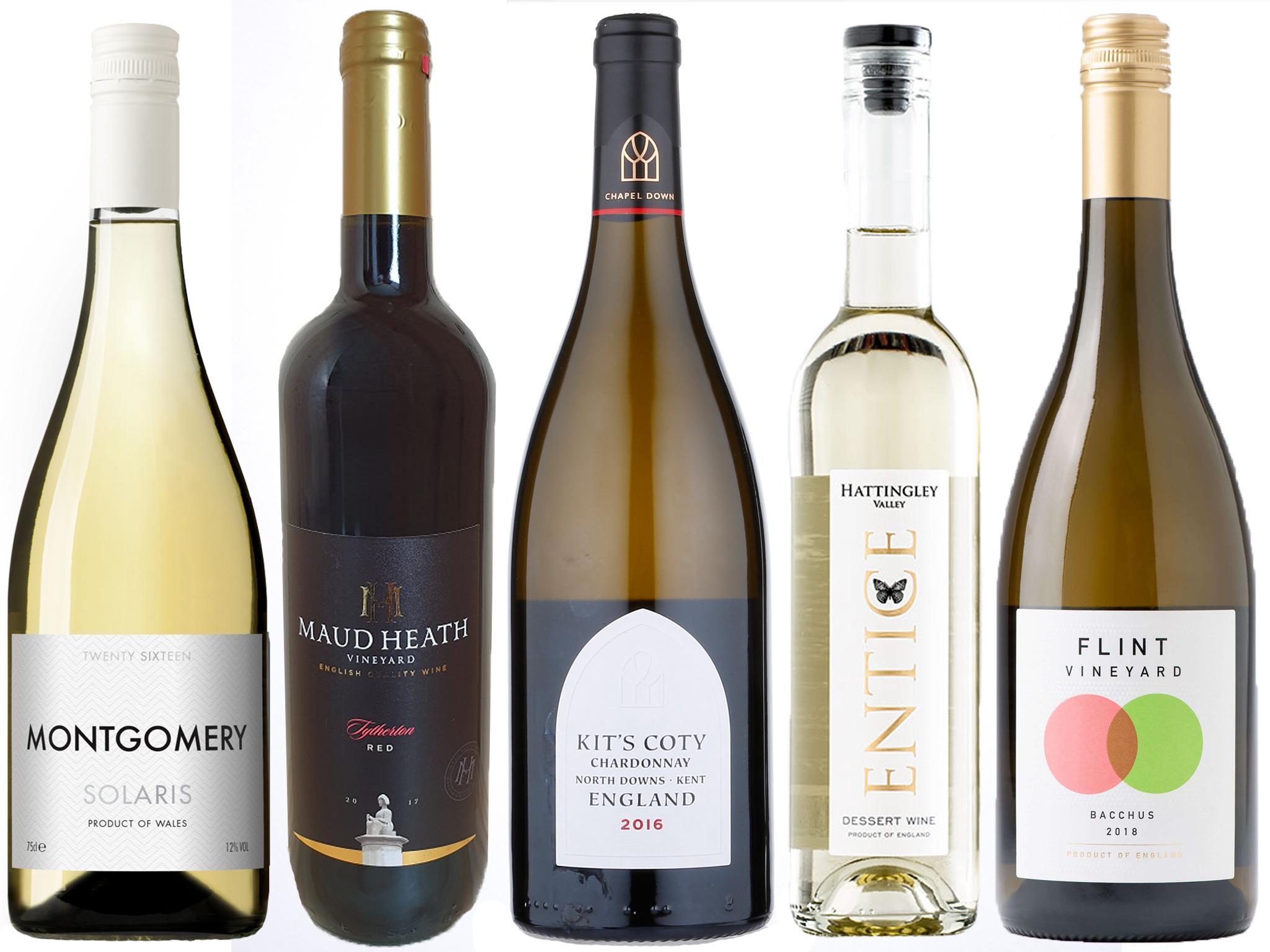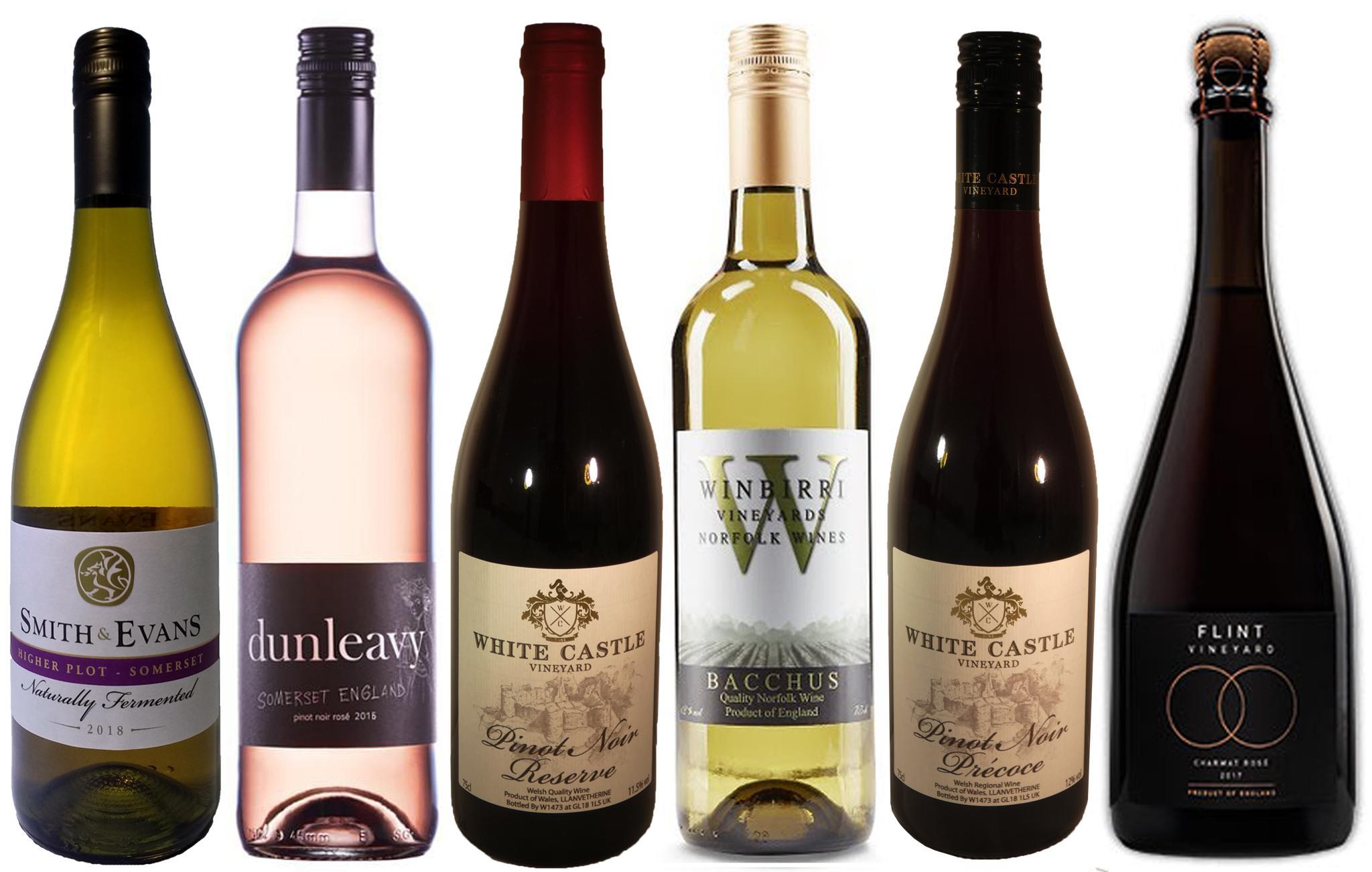The Independent's journalism is supported by our readers. When you purchase through links on our site, we may earn commission.
10 exciting English and Welsh bottles for English Wine Week
This week we’re celebrating the home grown still wines – and one new sparkler

As I wrote last week, the remarkable growth, and quality of, English sparkling wine has been one of the great wine stories of the past few years. And, after the vineyards full of German hybrid grapes were ripped up in favour of the champagne varieties, our still wines were for some years perhaps slightly overlooked. There was a sense they represented the past style of “hobbyist” amateur winemaking, designed for a very different kind of palate, and that sparkling was the only way to go.
But now, buoyed by the bubbly success story, and domestic expertise in winemaking, some of it bolstered by training at Plumpton College in Sussex, and a surer, more informed understanding of our soils and microclimates (and perhaps a little global warming), the whole industry is growing in leaps and bounds. We have seen a remarkable resurgence in the quality of English and Welsh winemaking, with new areas such as Somerset and East Anglia being explored, and adventurous, innovative styles of winemaking being attempted. So, as English (and Welsh) Wine Week comes to an end tomorrow, here are some of the new and exciting still wines available – and one English version of prosecco.
I wrote last week about husband and wife team Guy Smith and Laura Evans, whose excellent sparkling wine is made from champagne grapes grown on a limestone plot in Somerset. They have also now made an experimental limited edition still wine from the excellent 2018 vintage grapes, with a touch of bacchus, using natural fermentation from wild yeasts rather than commercial yeasts. Originally just made for family and friends, it’s now available on their website – Higher Plot Naturally Fermented 2018 (£13.00 smithandevans.co.uk). It’s complex, mouth-filling and grown up, with a slightly nutty, almost fino sherry like character. It is a lovely wine for substantial fish dishes or perhaps lighter pork. And very far removed from some of the rather insipid English whites of old.
A German created cross of other grape varieties, bacchus was one of the main grapes planted in the UK, often producing rather bland off dry wines, long before anyone had thought of the champagne varieties. But now its potential for creating sauvignon blanc style wines, due to higher acidity in England’s still cooler climate, is emerging. Last year’s vintage – the result of the long, hot summer – has also worked wonders on the other side of the country in East Anglia, where sandy soils and a very sunny, dry climate open up different opportunities for winemakers.
The 2017 bacchus produced by the Winbirri vineyard near Surlingham, east of Norwich in south Norfolk, won the Platinum Best White Single Varietal in the Decanter World Wine Awards, in a field of more than 17,000 entries, a truly special achievement.
The 2017 is now sold out, but the 2018 harvest was even better, so seek out the Winbirri Bacchus 2018 (£16.19 bakersandlarners.co.uk; £87.00 for six winbirri.com) with the clean and crisp grapefruit, citrus and slightly spicy, aromatic characters really showing through. Also in south Norfolk – clearly an area to watch – is the recently established Flint Vineyard in Waveney Valley, run by Hannah and Ben Witchell. Ben learned his trade at Plumpton and in Beaujolais and has produced the even more mineral, citrus Bacchus 2018, (£16.50 bbr.com), certainly coming close to that bracing sauvignon acidity.
Although this is a column about still wines, it’s also about innovation, so I have to mention the Flint Charmat Rose 2017 (£22.99 bbr.com) a blend of solaris, bacchus, reichensteiner and rondo and England’s first sparkler made by the same process used for prosecco. Unfortunately I’ve not been able to try it yet, but if the illustrious Berry Bros & Rudd are happy to sell it, that’s normally a pretty good endorsement.
Somewhat more of a challenge has been producing still wines from pinot noir. But winemakers, inspired by the knowledge that it already makes great sparkling wines here, now believe our terroir and climate can create great pinot noir – and are rising to the challenge with two of the best I’ve tasted, a long way from the thin, rasping flavour of some earlier attempts.
Firstly, the Maud Heath Tytherton Red 2017 (£18.95 farehamwinecellar.co.uk; £19.99 thenewwineshop.co.uk) from a family-owned vineyard near Calne in Wiltshire and winner of Decanter Bronze awards for three out of the past four years. This is proper pinot: fragrant and earthy, elegant and juicy all at the same time, with silky cassis and cherry flavours.
And now we have Welsh pinot noir, just outside the lovely Monmouthshire market town of Abergavenny (already a foodie destination). Plumpton-trained Robb and Nicola Merchant, who only planted the first vines on their White Castle vineyard in 2009, now sell a terrific range of red, white and sparkling wine. Their red wines particularly appeal, including a brace of pinots launched at the London Wine Fair recently, where I was fortunate enough to be able to sample them. They will soon be available via their website and at local independent retailers in Wales. The Pinot Noir Précoce 2018 is packed with gorgeous dark red berry flavours, is supple, juicy and succulent, with a long, but precise mineral finish, while the lightly oaked Pinot Noir Précoce 2017 Reserve is deeper, richer and more complex. Both ideal with charcuterie, cheeses and, of course, Welsh lamb.

They have recently planted a small plot of first domestic cabernet franc vines, the grape used to add aromatic succulence to bordeaux blends and to make toothsome light reds and sparklers in the Loire Valley. It could be an interesting experiment.
Further north, near Montgomery on the Welsh side of the border, the Montgomery Vineyard, run by the Lennard family, also produces a range of high class still wines, including the crisply refreshing and International Wine Challenge Commended Solaris 2018 (£20.00RRP or part of two bottle gift pack £50.00 discoverdelicious.wales; also available in various independent retailers).
In the recent IWC awards, a Gold medal went to a wine from a more long-established vineyard, Chapel Down, based on the North Downs in Tenterden in Kent, whose Kit’s Coty Chardonnay 2016 (£180 for six honestgrapes.co.uk; the 2015 is also £30.61 at vivino.com) combines both the special flavour of a single vineyard wine as well as also being natural fermented and lightly oaked – all challenges English winemakers might have shrunk from in past decades. It delivers the expected flavour palate – brioche, some slight nuttiness and lightly baked fruits, clean acidity and a long finish, all of which makes it brilliant with shellfish, such as scallops or prawns.
Another challenge that has faced English winemakers was that of producing a great rose. But that has now been surmounted with wines such as the vibrant and crisply refreshing, Dunleavy Pinot Noir Rose (£12.95 dunleavyvineyards.co.uk; £13.00 novelwines) made by Ingrid Bates in the Chew Valley just outside Bristol, with a little seyval blanc added to the pinot. A lovely wine for warm weather sipping. Who needs Provence when you have Somerset?
And finally, if all that wasn’t exciting and innovative enough for you, the Hattingley Valley Winery (which makes sparkling wines for itself and others) in Hampshire is now producing its own icewine – the style of dessert wine made in places such as Canada from very late harvested grapes, picked after being touched by frost. The very limited edition Hattingley Valley Entice 2016 (£31 for 100ml harveynichols.com) is amazingly clean on the palate and rich with luscious apricot and autumn fruit flavours, ideal with summer pudding. The 2018 vintage is due out soon, further details on the Hattingley website here. And that, I think, just shows how far English and Welsh still wines have travelled. And it is an exciting road they are on.
Join our commenting forum
Join thought-provoking conversations, follow other Independent readers and see their replies
Comments
Bookmark popover
Removed from bookmarks